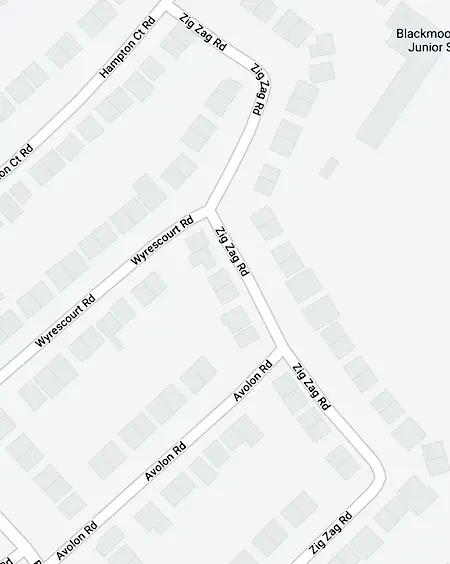A series of short straight lines, set at angles to one another and connected to form a continuous line. Often forming a regular pattern, but not necessarily so. Also, the action of moving along such a course.
Zig-zag
What's the meaning of the phrase 'Zig-zag'?
What's the origin of the phrase 'Zig-zag'?
This term seems to have come into English from Continental Europe – The Netherlands, France, or possibly Germany. The origin is unknown. The reduplication is suggestive of alternation, as with other phrases of that sort, e.g. tick-tock and see-saw.
In 1706, the Dutch author Roelof Roukema published Naam-boek der beroemde genees- en heelmeesters van alle eeuwen [Book of Medicine and Healers]. This contains the line:
“eenige in de voorstad van St. Germain zig zag bewegen”
which loosely translates into English as:
“some in the suburb of St. Germain move zig zag”
The German word ‘zickzack’ dates from around the same time and is known (in Sperander) from 1727. That usage referred to the fortifications of castles, the walls of which were sometimes built in zig-zag form.
Zic-zac/zick-zack soon began to be written as zig-zag. The first record we have of that is in Johnathan Swift’s prose poem My Lady’s Lamentation, 1728:
How proudly he talks
Of zigzags and walks
It didn’t take long for the term to begin to be used in a figurative sense, that is, in reference to any continual changes; for example, in William Cowper’s Conversation, 1781:
“Though such continual zig-zags in a book, Such drunken reelings, have an awkward look.”
As the image above makes manifest – there is a real Zig Zag Road, it’s in Liverpool, UK.
See other reduplicated phrases.
The history of “Zig – zag” in printed materials
Trend of zig – zag in printed material over time
Browse more Phrases
About the Author

Phrases & Meanings
A-Z
A B C D E F G H I J K L M N O P Q R S T UV W XYZ
Categories
American Animals Australian Bible Body Colour Conflict Death Devil Dogs Emotions Euphemism Family Fashion Food French Horses ‘Jack’ Luck Money Military Music Names Nature Nautical Numbers Politics Religion Shakespeare Stupidity Entertainment Weather Women Work
How did we do?
Have you spotted something that needs updated on this page? We review all feedback we receive to ensure that we provide the most accurate and up to date information on phrases.
